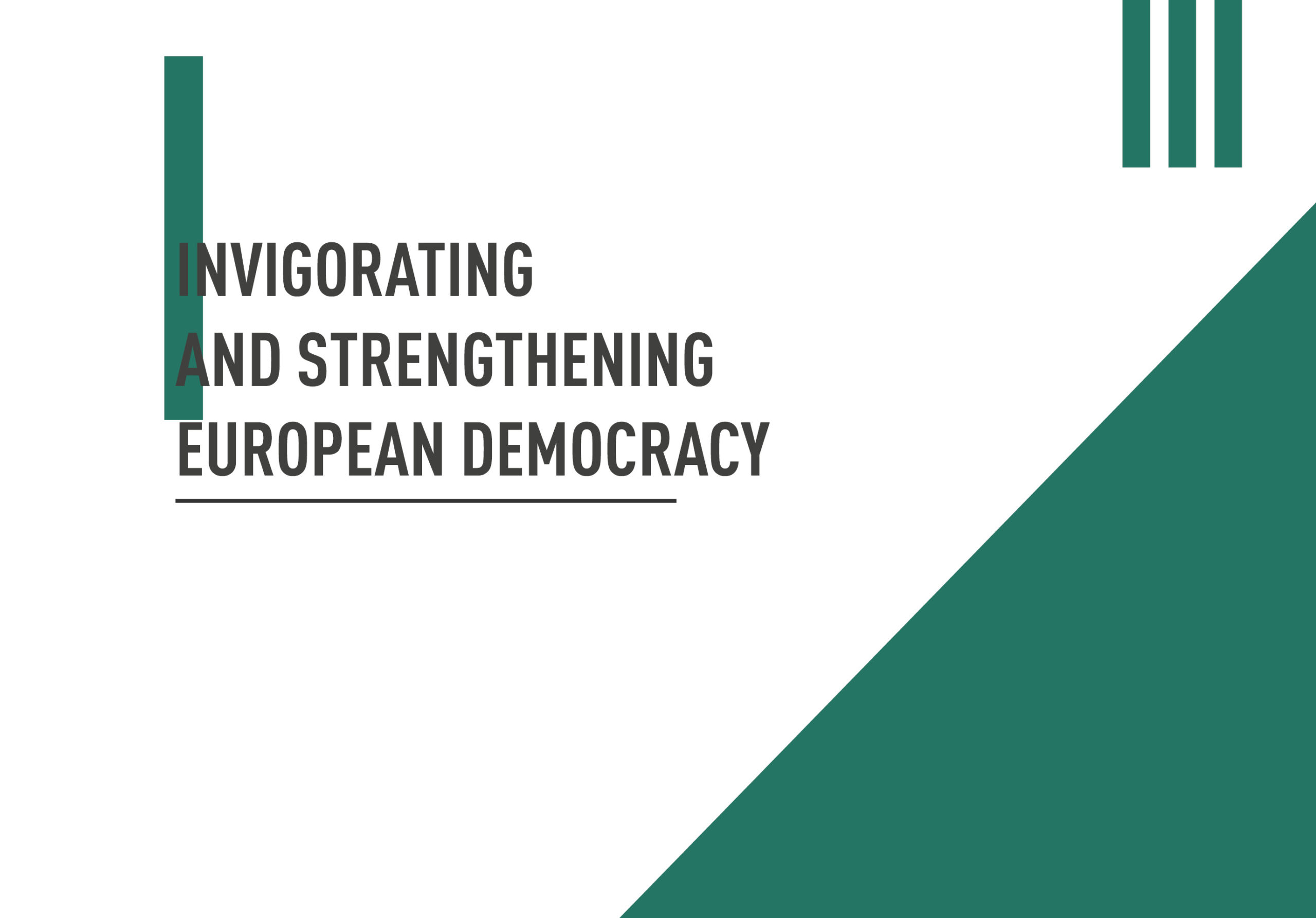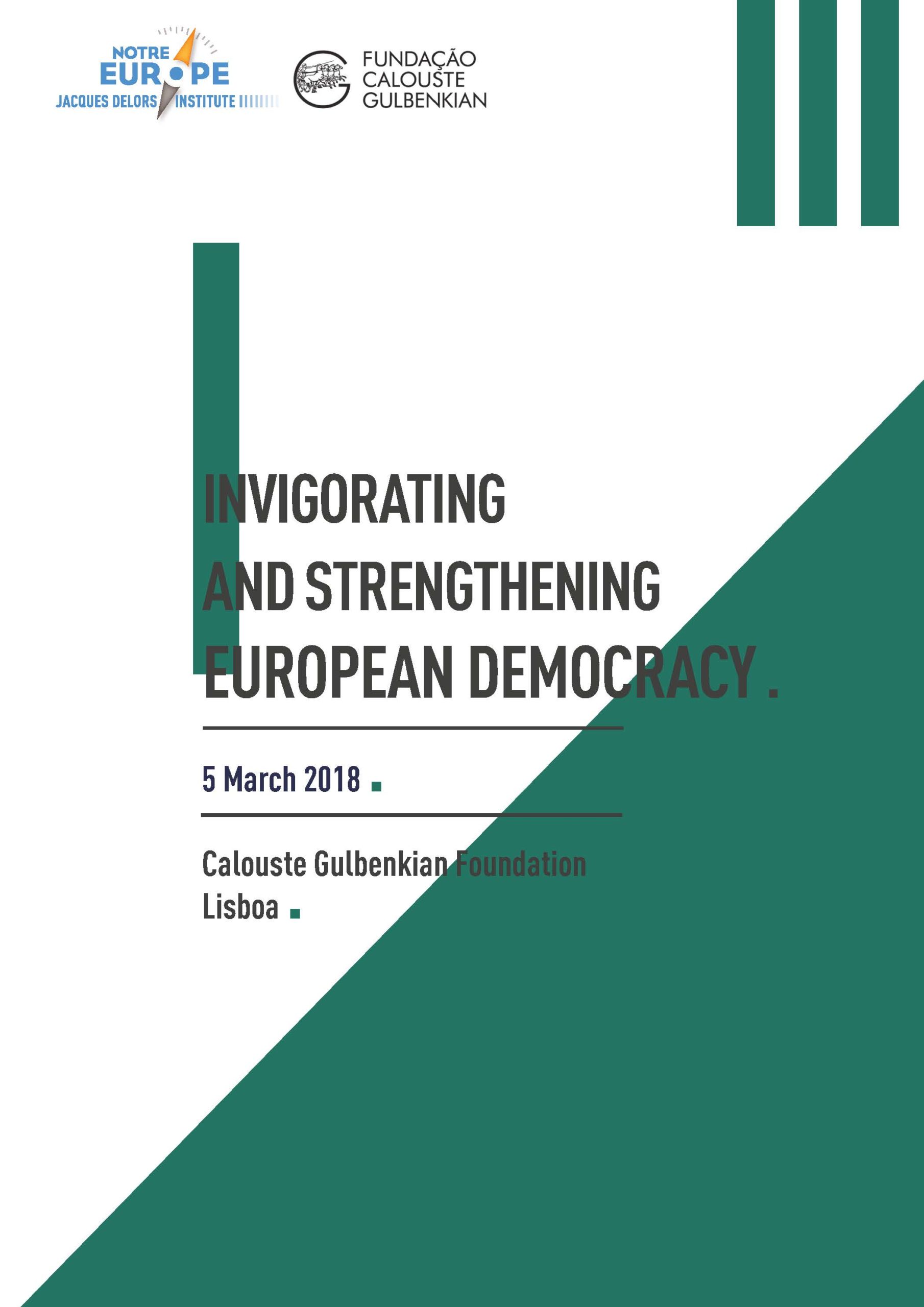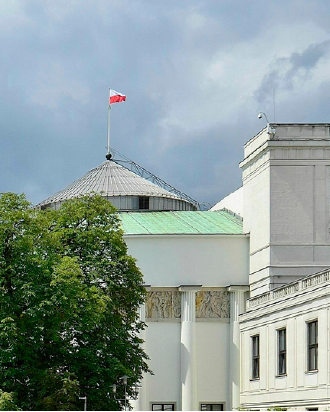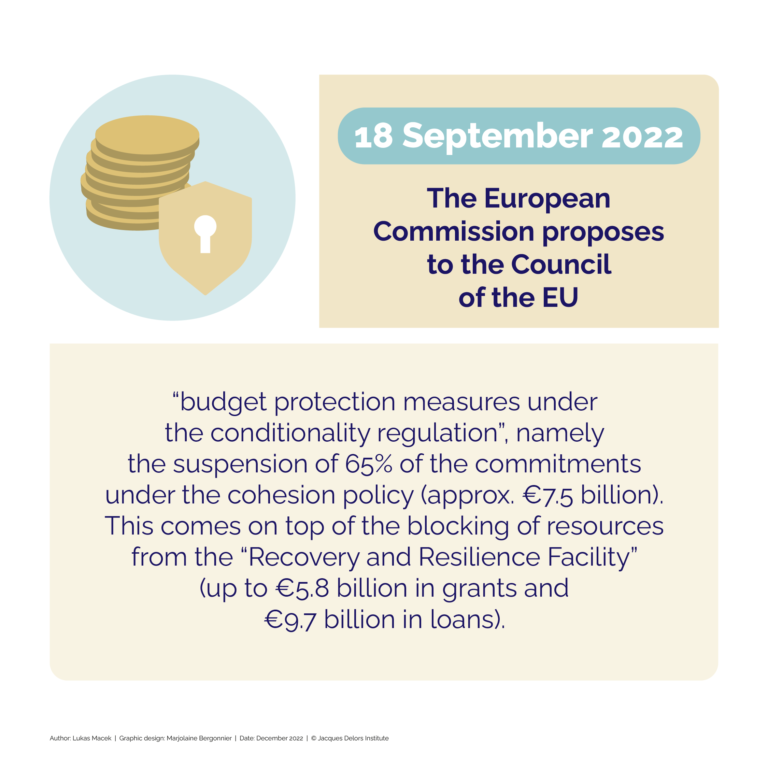The Jacques Delors Institute, in partnership with the Gulbenkian Foundation, organises a debate about the European Union tools to face the threats which European democracy and rule of law are undergoing.
For the first time in History, the European Commission has activated Article 7 of the Lisbon treaty against Poland. This article foresees in particular substantial sanctions that can go as far as preventing the incriminated State to vote. Triggering this procedure is unprecedented and underlines the alarming political climate certain democracies are facing these days. Indeed, beyond the questioning of judiciary reforms in Poland, Viktor Orban’s Hungary, or, more recently, the harming of the rule of law during the Catalan crisis, are also in the spotlight. Confronted to these risks, and more generally to the rise of nationalist movements, the European Union is equipped with mechanisms aiming at guaranteeing the integrity of democratic values and the rule of law on which it is founded. Article 7 is certainly one of them, but its complex procedure, requiring the Member States unanimity, is likely to reduce the European institutions reaction to a verbal threat, and would highlight their powerlessness. Therefore, how can the EU remain a guardian of democratic values, react efficiently when they are threaten, and promote them? Are the European tools adequate, shall we rethink their implementation or consider alternative measures?
Find more information in the programme.
For the first time in History, the European Commission has activated Article 7 of the Lisbon treaty against Poland. This article foresees in particular substantial sanctions that can go as far as preventing the incriminated State to vote. Triggering this procedure is unprecedented and underlines the alarming political climate certain democracies are facing these days. Indeed, beyond the questioning of judiciary reforms in Poland, Viktor Orban’s Hungary, or, more recently, the harming of the rule of law during the Catalan crisis, are also in the spotlight. Confronted to these risks, and more generally to the rise of nationalist movements, the European Union is equipped with mechanisms aiming at guaranteeing the integrity of democratic values and the rule of law on which it is founded. Article 7 is certainly one of them, but its complex procedure, requiring the Member States unanimity, is likely to reduce the European institutions reaction to a verbal threat, and would highlight their powerlessness. Therefore, how can the EU remain a guardian of democratic values, react efficiently when they are threaten, and promote them? Are the European tools adequate, shall we rethink their implementation or consider alternative measures?
Find more information in the programme.
Lisbonne
SUR LE MÊME THÈME
ON THE SAME THEME
PUBLICATIONS
EU ENLARGEMENT AND PRE-ACCESSION ASSISTANCE IN THE NEXT MFF

Une victoire à la Pyrrhus des « illibéraux » ouvre la voie à un réengagement européen de la Pologne

The power struggle between the European Union and Hungary

MÉDIAS
MEDIAS
« Pologne, la puissance européenne de 2025 ? »

Conseil de l’UE : pourquoi la présidence de la Pologne sera particulièrement scrutée

Viktor Orbán, central à l’internationale, marginal en Europe ?

















